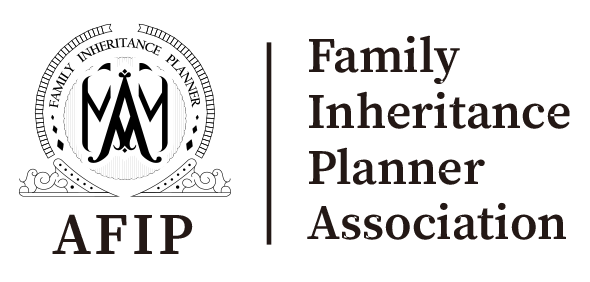A Crossroads of Tradition and Modern Wealth Management For more than a century, Hong Konghas served as Asia’s financial nerve center — a city where East meets West, and where familywealth converges with global capital. As generational wealth expands across Asia, Hong Kong hasevolved from a trading port into a sophisticated platform for wealth succession and preservation. Itsunique position — underpinned by a robust common law system, independent judiciary, free capitalmovement, and proximity to Mainland China — makes it a natural gateway for legacy planning in
the region.In a world where wealth transfer from first-generation entrepreneurs to their heirs is reshapingAsia’s economic landscape, Hong Kong stands as both a guardian of stability and a laboratory forinnovation. The city is not merely a jurisdiction of financial tools; it is a philosophy of balance — onethat bridges family values, legal integrity, and strategic foresight.A Legal Framework Built for Trust Hong Kong’s Trust Law Ordinance — substantially modernized in2013 — established the city as one of the most advanced trust jurisdictions in Asia. The reformsabolished the “rule against perpetuities,” allowing trusts to exist indefinitely, and introduced clearprotections for settlors, beneficiaries, and trustees alike. This legal architecture provides familiesthe flexibility to tailor their structures for business continuity, tax efficiency, or philanthropicmissions.Equally important, Hong Kong maintains a common law heritage inherited from the UnitedKingdom, ensuring that local courts interpret and enforce trust law with clarity and predictability.International families appreciate this legal stability, especially when managing assets across
multiple jurisdictions. The ability to use discretionary, charitable, or purpose trusts, combined withmodern instruments like family constitutions and private trust companies (PTCs), enables familiesto institutionalize their legacy without losing personal control.
The Rise of Family Offices Over the past decade, Hong Kong has witnessed an extraordinary boomin family office establishments. According to InvestHK, the number of single and multi-family officesin the city has grown exponentially, driven by both regional and global wealth inflows. Thegovernment’s proactive stance — including the 2023 Policy Statement on Developing Family OfficeBusinesses in Hong Kong — introduced tax concessions, residency incentives, and even art and
philanthropy partnerships to attract ultra-high-net-worth families.
Hong Kong’s family office ecosystem goes beyond investment management. It integrates legaladvisory, estate structuring, philanthropy, education, and succession governance under oneinstitutional roof. For many Asian entrepreneurs, the first generation’s mission was wealth creation;the second generation’s mission is wealth preservation; but the true test lies in governance —ensuring unity, vision, and continuity. Hong Kong’s professional ecosystem of lawyers, accountants,trustees, and asset managers is uniquely positioned to facilitate that transition.Balancing Cultural Values with Modern Governance Unlike Western economies, where successionplanning has long been normalized, many Asian families still approach inheritance with emotionalor cultural hesitation. Traditional values — filial piety, respect for elders, and collectivedecision-making — often influence how wealth is discussed and distributed. In Hong Kong,professional advisors play an increasingly crucial role in bridging family sentiment with institutionaldiscipline.Family constitutions, often seen as soft-law instruments, have gained traction. They codify thefamily’s vision, values, and succession principles — sometimes integrating Confucian ethics withmodern fiduciary duties. These documents serve not merely to allocate wealth, but to cultivateintergenerational harmony and moral stewardship. As one prominent Hong Kong patriarch oncenoted: “True inheritance is not the money we give our children, but the values that teach them how
to use it.”Cross-Border Complexities and Strategic Solutions With Hong Kong acting as the financial gatewayto Mainland China and the rest of the world, many wealthy Chinese families face complexcross-border considerations. These include currency controls, tax transparency under CRS(Common Reporting Standard), and estate exposure to multiple legal jurisdictions. Offshorestructures — particularly BVI, Cayman, and Singapore trusts — are often used in conjunction withHong Kong holding companies to achieve both flexibility and compliance.Furthermore, the global shift toward transparency and compliance has changed the way Asianfamilies approach legacy planning. Rather than simply hiding assets, families now focus on legalstructuring, proper documentation, and ESG integration. Hong Kong’s combination of stronggovernance and international banking access allows it to serve as a compliance-friendly yetefficient wealth hub.Philanthropy and the “Legacy of Impact” Modern succession in Hong Kong is no longer confined toasset transfer. Increasingly, families want their wealth to make a difference. The rise of family
foundations, donor-advised funds, and ESG-aligned portfolios reflects a new era of responsiblestewardship. Younger generations — often educated abroad — are redefining success beyondfinancial gain. They emphasize impact, sustainability, and purpose.
Philanthropy, when integrated into the family governance structure, becomes a unifying force. Itbridges generations and builds the family’s public legacy. Hong Kong’s nonprofit regulations andtax-exempt foundation models provide a convenient framework for families to institutionalize theirgiving, turning “wealth preservation” into “value creation for society.”The Next Decade: Hong Kong as Asia’s Legacy Capital As Asia undergoes the largestintergenerational wealth transfer in history — estimated at over USD 10 trillion by 2030 — HongKong’s role as a strategic legacy hub will only deepen. The convergence of wealth, law, andinnovation positions the city as Asia’s capital for succession planning. Its connectivity to MainlandChina, rule-of-law foundation, and bilingual professionals make it an unrivaled bridge for globalfamilies seeking continuity, confidentiality, and credibility.
In this evolving landscape, the true value of Hong Kong lies not only in its financial infrastructure butin its ability to translate tradition into governance and wealth into wisdom. For families seeking topass on not just what they have, but who they are — Hong Kong remains the living heart of Asianlegacy planning

